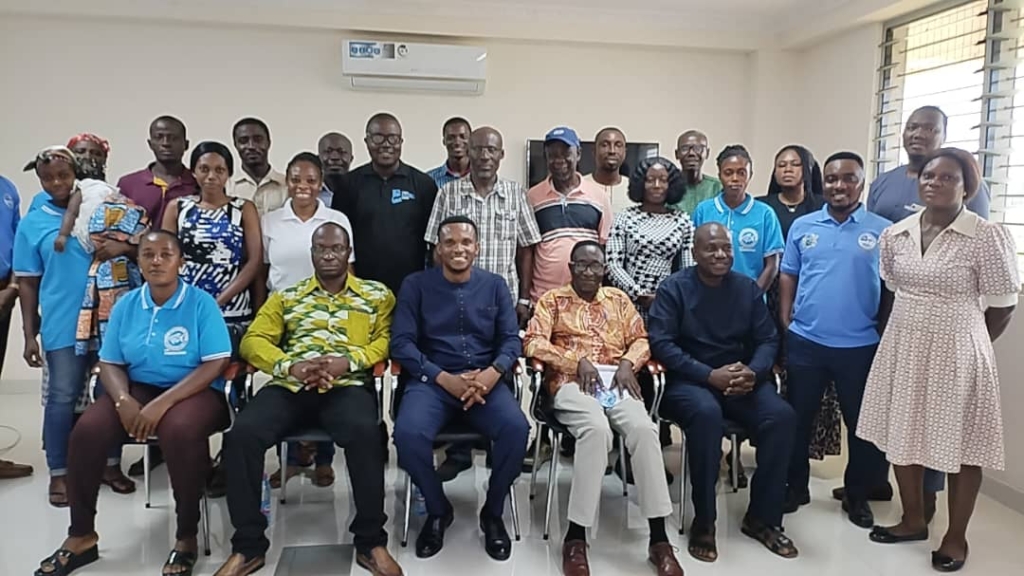The Ahafo Regional Directorate of the Fisheries Commission has commemorated World Fisheries Day 2025 in Goaso, spotlighting the transformative role rural aquaculture can play in Ghana’s food security and local economies.
The event, held on the theme “Promoting Sustainable Fisheries Development in the Ahafo Region: Challenges and Way Forward”, brought together officials from the Ministry of Food and Agriculture, fish farmers, processors and other value-chain actors.

World Fisheries Day, marked annually on 21 November, acknowledges the indispensable contribution of fishers and fish workers to food security, employment and sustainable development worldwide.
The observance is especially relevant to rural economies like Ahafo, where aquaculture is emerging as a viable solution to youth unemployment and declining traditional livelihoods.
Globally, over 3.3 billion people rely on fish for at least 20% of their animal protein intake, while average fish consumption stands at 20.5 kg per person annually.
The fisheries and aquaculture sector contributes about 1% of global GDP, and more than 60 million people are directly employed in capture fisheries and aquaculture.
In Ghana, available statistics state that fish consumption averages 25 kg per person yearly, which is higher than both the African and global averages; yet, the country imports between 60–70% of its fish, costing over US$200 million annually.
Fisheries contribute about 3% of Ghana’s GDP and support the livelihoods of more than 3 million people, directly and indirectly. Against this backdrop, strengthening rural aquaculture in regions like Ahafo is seen as key to closing Ghana’s fish supply deficit.
Addressing participants, Hanson Kodzo Dzamefe, Ahafo Regional Director of the Fisheries Commission, said new interventions to expand technical support to fish farmers in the region upgraded extension services, both in-person and through digital platforms such as WhatsApp knowledge-sharing groups.
He added that training workshops on branding, value addition, hygiene, financial management and record-keeping will be held while providing support to help farmers offset the rising cost of feed and inputs.
Mr. Dzamefe emphasized that fish farming no longer requires vast land.
“With technology, anyone can raise fish using tanks, tarpaulins, small rooms and household spaces.”
He encouraged every household to consider “at least one small pond” for supplemental income and improved nutrition.
To build long-term interest, the Commission will soon partner second-cycle and tertiary institutions in the region by providing tanks, tarpaulins and starter tools so students can gain hands-on experience and potentially pursue aquaculture as full- or part-time work.
Protecting Water Bodies Is Key
The Ahafo Regional Director of Food and Agriculture, Kingsford Nyame, used the occasion to call for renewed commitment to environmental protection. He warned that pollution of water bodies especially through agrochemicals and illegal mining, undermines not only fish production but also public health.
“The value chain can only thrive if we protect our streams and rivers,” he said. “We cannot promote aquaculture while the same resources are being contaminated.”
Mr Nyame stressed that with global demand for fish rising, Ghana’s ability to scale up its own production in places like Ahafo could strengthen food security, expand rural incomes, and reduce the nation’s multi-million-dollar import bill.
DISCLAIMER: The Views, Comments, Opinions, Contributions and Statements made by Readers and Contributors on this platform do not necessarily represent the views or policy of Multimedia Group Limited.
DISCLAIMER: The Views, Comments, Opinions, Contributions and Statements made by Readers and Contributors on this platform do not necessarily represent the views or policy of Multimedia Group Limited.
Source: myjoyonline.com










